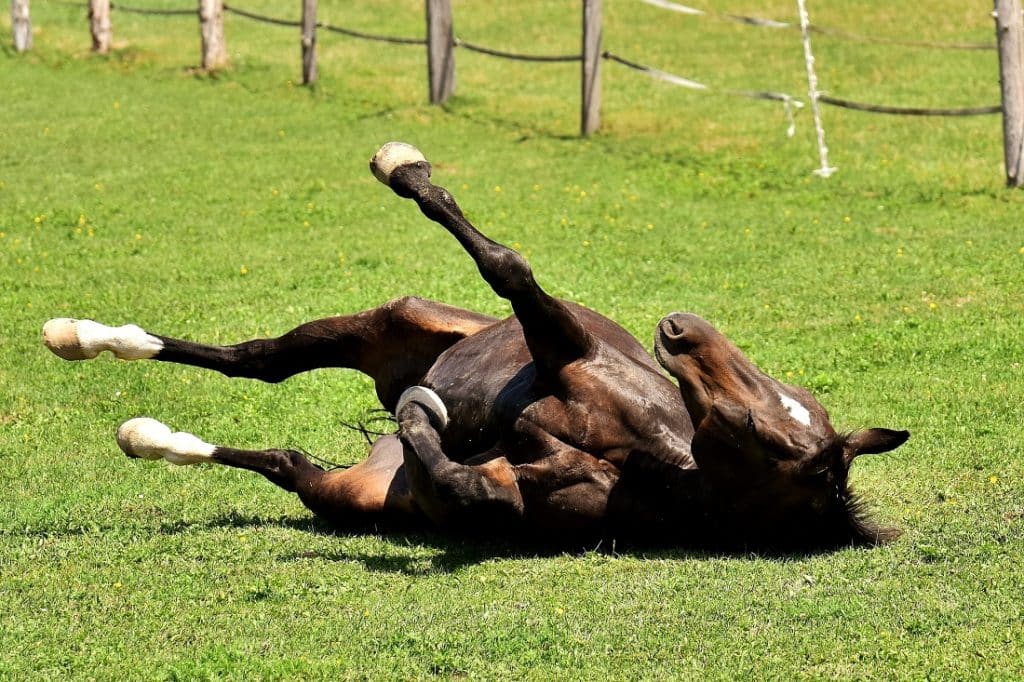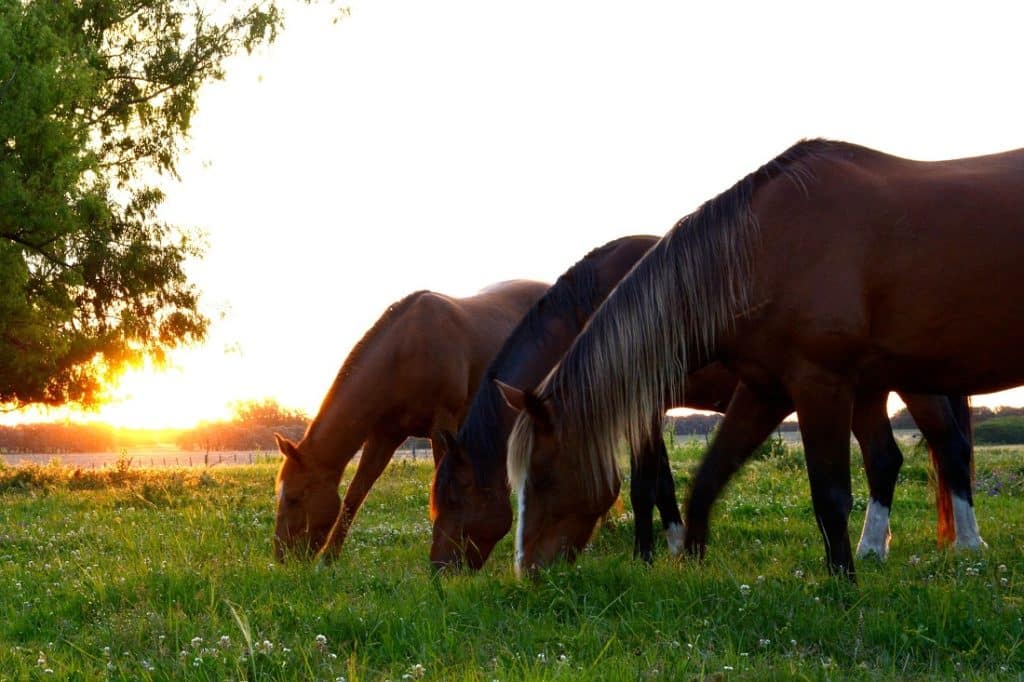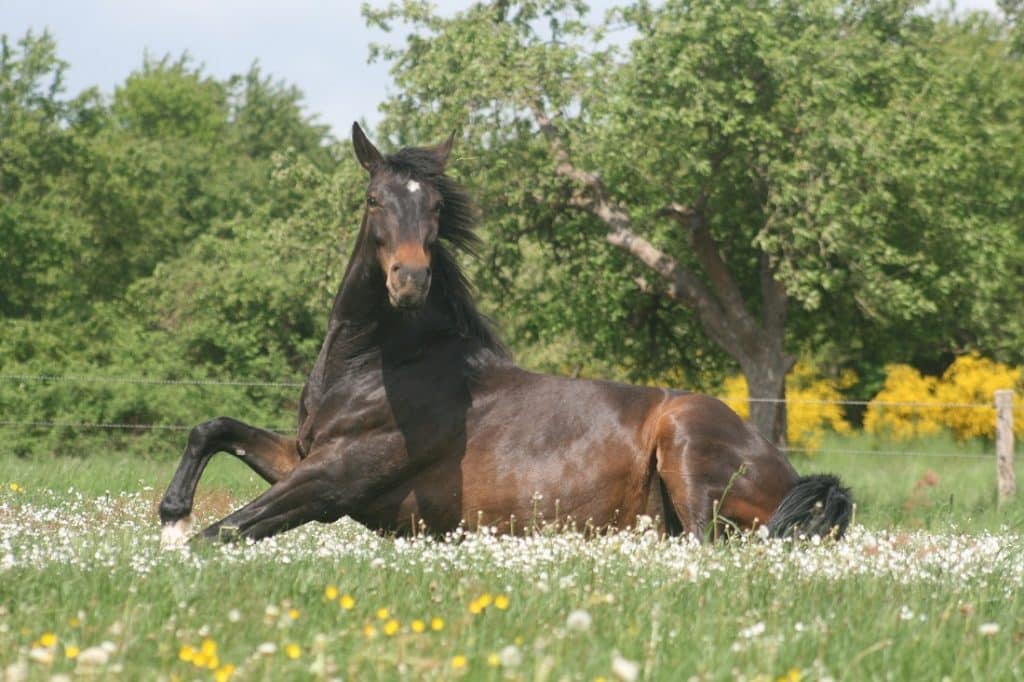Equine Health
Common equine digestive issues, and how to spot them
Keeping our horses in good health is a priority for any equestrian. Digestive issues can strike at any time, and it pays to be aware of what to look out for. Today, we’re taking a look at some common equine digestive issues and a few of the signs to look out for. If you are ever concerned about your horse’s health and wellbeing, get in touch with your vet.
Colic
Colic: the word itself is enough to worry any horse owner. Colic refers to abdominal pain, which itself can have a number of causes (usually stemming from problems in the gastrointestinal tract) including gas, indigestion, a twisted gut, and impaction.
If untreated, colic can be serious: early diagnosis and treatment are crucial in improving the outlook. That means it’s important to know what to look out for.
Symptoms of Colic in horses can include:
- Restlessness
- Pawing at the ground
- Lip curling
- Moving as if to urinate
- Sweating
- Increased breath rate
- Rolling
- Irritation and stomach kicking
If you are concerned that your horse may have colic, call your vet immediately: the quicker your horse can receive treatment, the better the outlook.
Ensuring that your horse has access to plenty of fresh water, and enjoys a healthy diet rich in fibre, can help to keep their digestive system in good health – in turn, working to reduce the risk of colic. If you’re planning to make changes to their diet or exercise regime, introduce these gradually; and make sure that your horse is able to cool down after exercise.

Ulcers (Equine Gastric Ulcer Syndrome EGUS)
Gastric ulcers are common in horses, particularly those who compete in activities such as racing and eventing, due to an increase in gastric acid as a result of exercise. Stress, illness, and a lack of fibre in the diet can also contribute towards gastric ulcers in horses.
The equine stomach can be divided into two sections when it comes to ulcers: the upper and lower stomach.
The upper part of the stomach is called the squamous region, and the development of ulcers here is often referred to as Equine Squamous Gastric Ulcer Syndrome, or ESGUS. This part of the stomach is sensitive to stomach acid, and is more commonly susceptible to gastric ulcers.
The bottom two thirds of the stomach is called the glandular section. This part of the stomach is generally more resistant to the impact of stomach acid, and ulcers occur here less frequently than in the squamous region.
Symptoms of gastric ulcers can include:
- Loss of appetite
- Decreased performance
- Irritability or changes in attitude
- Weight loss
- Poor coat or body condition
- Abdominal pain
- Teeth grinding
If you’re worried that your horse might have gastric ulcers, give your vet a call to discuss diagnosis and treatment. Medication may be required, while changes to lifestyle and diet could also be on the agenda.

Diarrhoea
If your horse has diarrhoea, it’s usually a sign that something is up with their digestive system. Loose stools can be the result of a number of conditions, and identifying what’s sparked it is important in order to treat the root cause.
Often, diarrhoea can be caused by behavioural factors such as stress or nerves; or dietary factors like a new feed or overfeeding. If there’s an obvious reason behind why they may be feeling a little under the weather, and the diarrhoea resolves itself within a day, then you may not need to worry. Keep your horse well hydrated and well fed, and wait for the storm to pass.
If, however, their diarrhoea lasts over 24 hours; and your horse shows additional symptoms, it’s wise to seek the advice of your vet. These extra symptoms could include lethargy, decreased appetite, pale gums, or signs of dehydration. Diarrhoea can also be a sign of more serious conditions like colitis, rotavirus and Potomac Horse Fever (PHF), so it is always best to speak to your vet to rule out anything more serious.
Constipation
Constipation in horses can have a number of causes and, while it can often be nothing to worry about, it requires attention and treatment to help your horse get back to living their best life. As well as hard, dry manure; and difficulty passing manure, your horse may also display symptoms such as a rough, dull coat; rolling; and depression.
Stress and poor diet are common culprits in causing constipation in horses, as are dehydration, intestinal parasites, and dental conditions.
A chat with your vet is always a good idea if you are worried about your horse and their digestive health. Don’t forget: natural digestive supplements can also be added to your horse’s daily feed, to help them live their best life!


